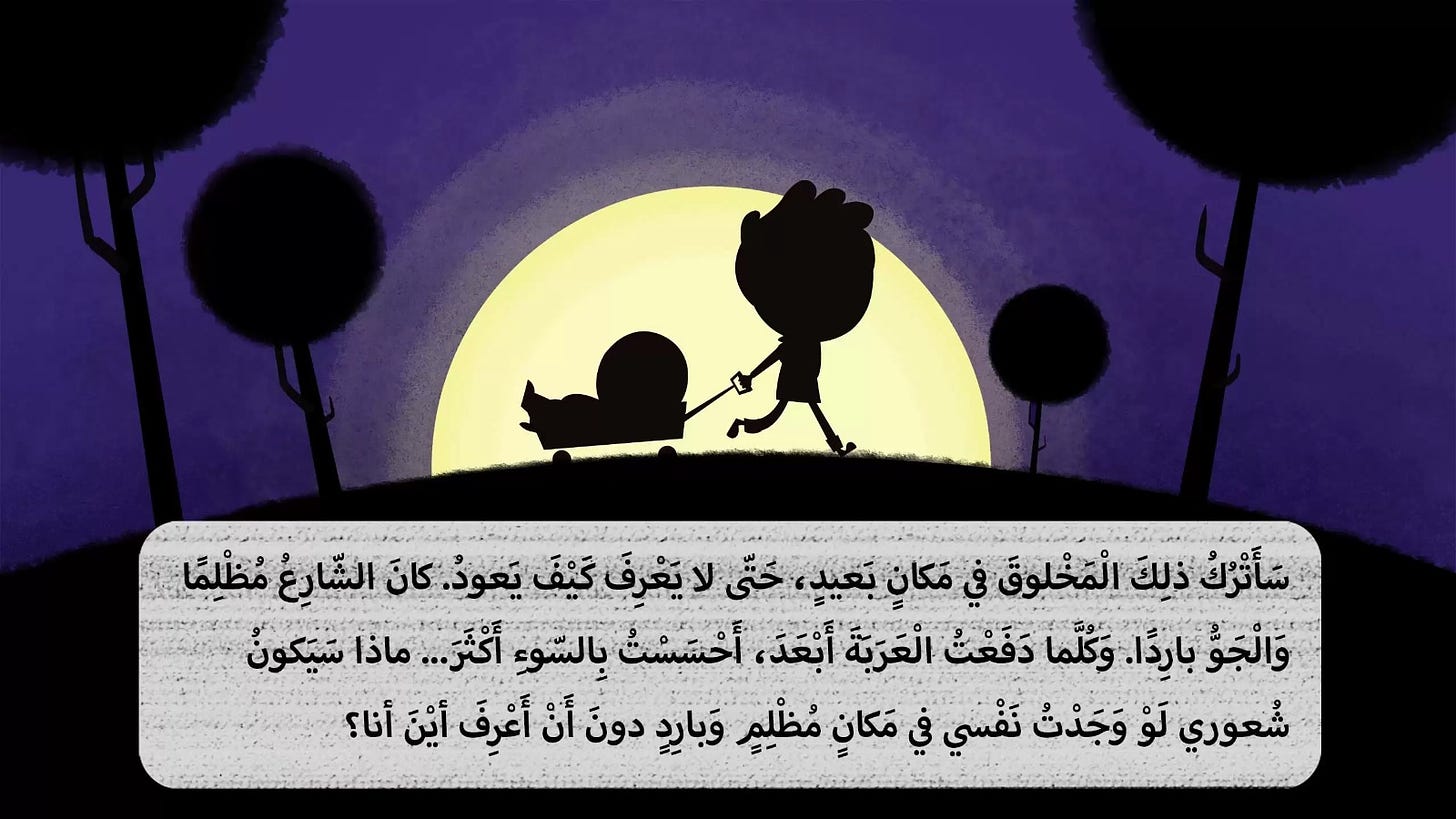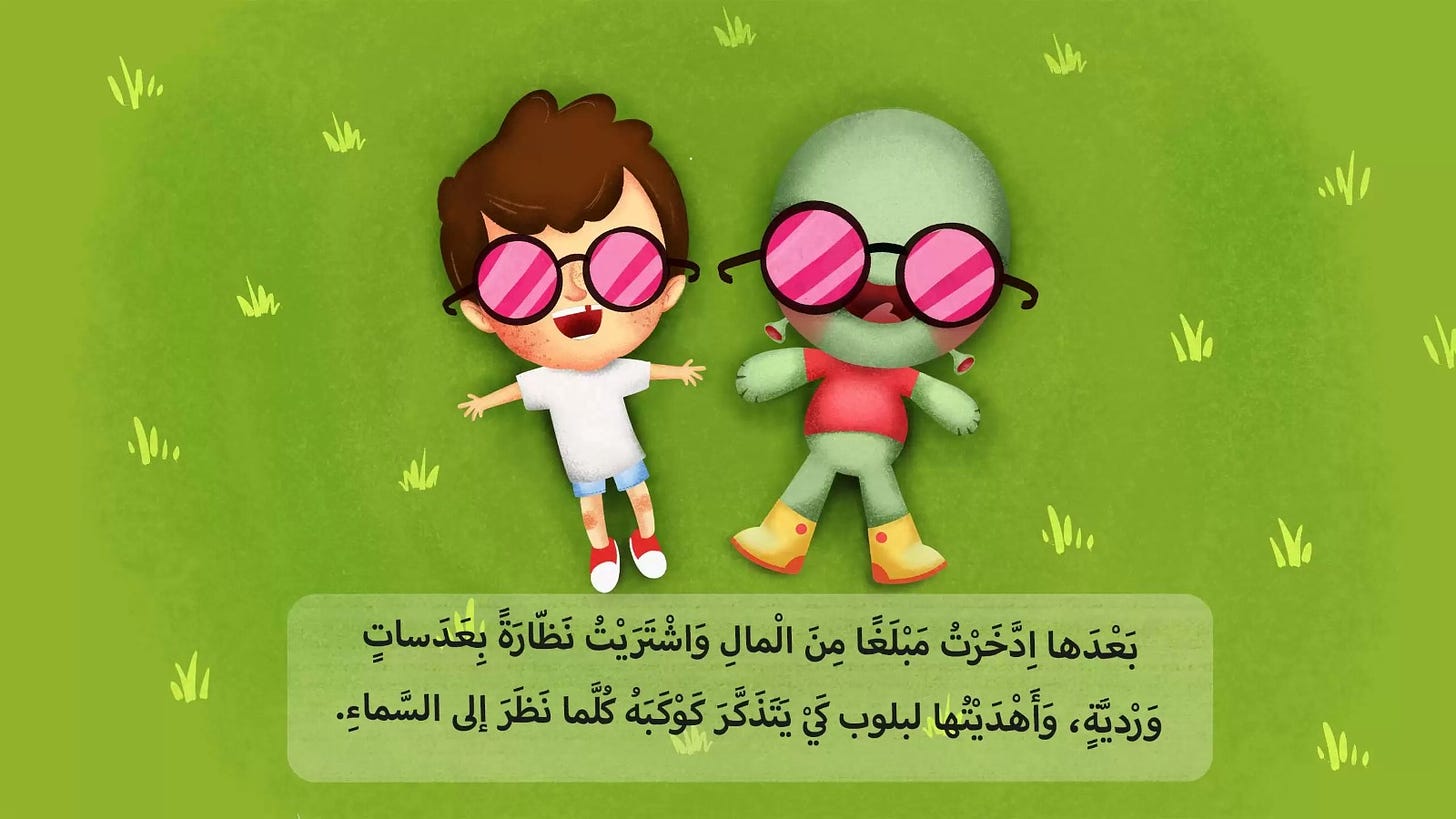Reading For Pleasure: The Arabic Stories Inspiring Children
Asafeer is on a mission to encourage young readers with educational books that make learning fun.
The story begins when a young alien crash-lands on Earth. Frightened and far from home, he is taken in by a kind family. But their son soon grows resentful of the gifts and attention his parents lavish on the new arrival, so, one night, he puts him in a pushcart and wheels him away.
Their relationship changes when the alien saves the boy from being run over, and they start talking. He describes his beautiful planet, now destroyed by climate change. His parents sent him to earth in search of safety, but he is miserable and misses his home.
For the nine and ten year olds this story is aimed at, the parallels offer an insight into the refugee experience. “We try to make these heavy real-life situations easy for kids to understand so that it grows with them and informs them as people,” says Amro Abu-Hmaidan. Cultivating this kind of emotional intelligence isn’t prioritized by school curriculums in the Middle East – an oversight Abu-Hmaidan aims to address through Asafeer.
He launched the company in 2014 after growing frustrated by the lack of good content in Arabic to teach his children. “Arabic children’s literature tends to be very preachy and dry – listen to your mum, go to bed early, do this, don’t do that…. our stories at Asafeer talk about important issues, but they don’t take that instructive tone.”
Asafeer has since published over 1100 Arabic children’s stories covering a broad span of topics from the French Revolution and World War 2 to books about shapes and animals for younger readers. Alongside Arabic content, it provides illustrated children’s books in Urdu, Hindi, Zulu and various European languages, including French and Spanish. Today, the platform has amassed over half a million paid subscribers, with up to three million users accessing its free content. "We want to improve the whole ecosystem around children's literature in Arabic," he says.
Abu-Hmaidan’s own love of reading came later in life during a period of illness. He decided to make a positive impact by writing and then commissioning books designed to educate children in fun and accessible formats. “One of the biggest challenges in the Arab world is that the middle class isn’t reading, so they’re not doing enough to lift their societies up,” Abu-Hmaidan says.
Around 400 schools are signed up for the subscription service, which unlocks the full Asafeer library alongside teaching tools, additional lessons and assessment devices. The platform uses educational games and competitions to make learning through reading engaging and enjoyable. Thousands more utilize the free service. “With kids, you need to get them early on and make them feel that reading is enjoyable, then it grows with them. I was able to do this with my kids, and through Asafeer, I wanted to do it for other people.”
Children are also encouraged to leave reviews, inviting them to think critically about the material and share their opinions. This is a key aspect of the Asafeerlearning philosophy and one of the reasons Ideas Beyond Borders chose to give Asafeer an Innovation Hub grant supporting the publication of more books.
“Asafeer is revolutionizing children's education in the Middle East by utilizing 21st-century technology to advance 21st-century skills like critical thinking and reason,” says Founder and President Faisal Saeed Al Mutar. “The absence of these skills from curriculums across the Arab world is limiting opportunities for new generations who want more.”
Efforts to change curriculums by removing outdated references and updating old material are often met with furious resistance in countries like Lebanon, Jordan and Iraq, where conservative mentalities see it as an attempt to undermine traditional and religious values. With many Middle Eastern governments failing to modernize curriculums, Abu-Hmaidan believes the private sector needs to do more to invest in education.
“We’re trying to push investors to see that you can apply business competition to books, knowledge and education. If this region is to have any hope of playing a productive role in the world at large, then businesses need to start investing in learning.”
This article was written by Olivia Cuthbert.





